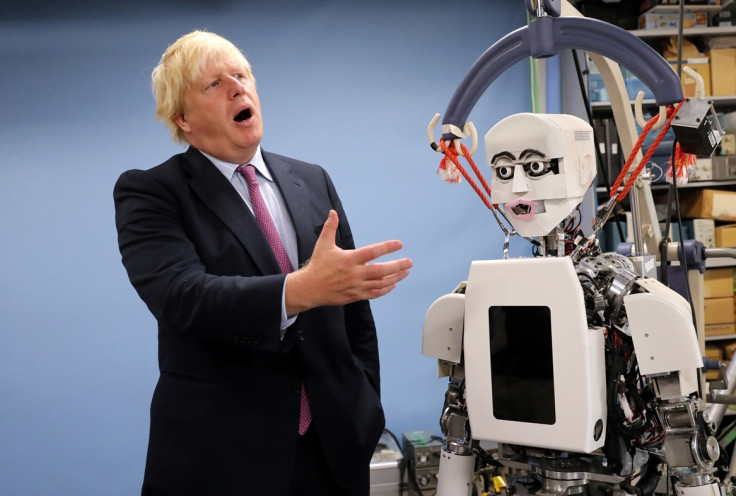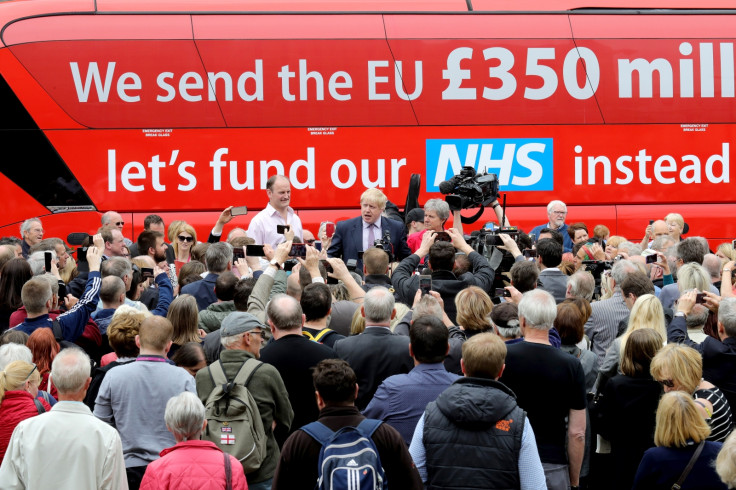Boris Johnson is more sinned against than sinning
When a rare Oxbridge nonconformist makes a case for the obvious the establishment is often aghast.
The main advocates of the euro 15 years ago were Oxbridge males of a certain age - Heseltine, Howe, Hattersley, Blair, Mandelson, the bosses at the Financial Times and the CBI, City and boardroom bigwigs galore.
Plus ça change. Economic and political commentary in the main financial newspapers, albeit with notable exceptions, is dominated by a pro-EU Oxbridge orthodoxy.
When Boris Johnson, a rare Oxbridge nonconformist, repeated the claim that Brexit would save £350m a week, the old-boy network in the Times, Financial Times, London Evening Standard et al, was aghast.
In fact, £350m per week is the gross UK contribution to the EU, but after various rebates and grants, the net figure, according to pro-leave 'Economists for Free Trade' is about £11bn a year or £211m per week.
This includes tariffs on non-EU imports to the UK, which are sent to Brussels. From 2015-2017, the figure will indeed average around £18bn or £350m per week.
However, economist David Smith, writing in the Times, called Boris's exaggeration 'the most famous wrong number in history'.
Having rebuked Boris for falsehoods, Smith then indulges in a couple himself. He states that it "has always been clear that the net effect of leaving the EU will, through a slower growing economy, be to make the public finances worse".
But that's not true - it's far from clear. Leave economists argue, as do many voters, that democracy and prosperity are inextricably linked. The EU is becoming increasingly undemocratic, and there have been devastating consequences for some economies - slow growth and youth unemployment of about 40% in southern Europe, for example.
Smith then misleadingly says that the UK contribution to the EU "......is 1% of all UK spending. Yet I still hear," he states, "people say that the loss of this amount, spread across the other 27 members, would somehow plunge the EU into crisis."
But that is a distortion - what Leavers say is that the UK's contribution is an important part of the funds required to run the EU's central bureaucracy. Without these, the EU will have to look to hard-pressed EU states for funds, a significant issue, as the EU's negotiating priorities emphasise.

For the Financial Times, Tim Harford wrote one of several articles condemning Johnson, accusing him of a "flamboyant falsehood", and explicitly linking the tactics which produced the referendum result to the 'bold lies' which led to the election of Donald Trump.
These journalistic inhabitants of the remain echo chamber refer only to leave misdeeds, and can't understand that the public regards the lies and exaggerations of the remain campaign as being on a far grander scale.
The remain strategy, as its self-proclaimed architect Peter Mandelson wrote in the Financial Times last year, was to 'pivot' away from questions about democracy and to focus the argument on the economy - tactics which were not regarded as honest by the public.
In this judo-like pivot, one of the most dishonest projections, dressed up as fact, was that UK households would each become £4,300 worse off per annum after Brexit. This is a total of about £116bn per annum for the UK's 27 million households, dwarfing Boris's £6bn 'flamboyance'.
Mandelson and his co-architects, former Prime Minister David Cameron and former Chancellor George Osborne, also threatened a rise in mortgage rates, a recession, an emergency budget and 500,000 job losses in the immediate aftermath of a leave vote.
In the event, in spite of these flamboyant falsehoods, there has been no emergency budget, GDP has risen by nearly 2%, employment by 300,000, mortgages have gone down, not up, and household incomes are more or less at record levels.

Outside the cloistered world of academia, London, the City and Westminster, the public debated these issues and weighed up the alleged lies and exaggerations on both sides. Its conclusion was that the leave campaign was more sinned against than sinning, hence the referendum result.
The conformist Oxbridge economists, referring only to the faults of Leavers, offer heavily distorted analyses - yet contribute significantly to group think and confirmation bias in the corridors of power, and at the dinner parties and golf clubs of the metropolitan elites.
But their words fork no lightning in most lounge bars, high streets and villages of the country. The greatest lesson for this economic orthodoxy is to consider the history of the last 30 years. They, and their predecessors, were wrong over the exchange rate mechanism, wrong over the euro and were wrong about the immediate consequences of a leave vote.
In most of these debates, chaps, you were out-thought by the general public - a good lesson for you.
That's why democracy works.
Tim Martin is the chairman of pub chain Wetherspoons, a company he founded in 1979. Today there are 900 Wetherspoon pubs across the UK and Republic of Ireland, making it one of the biggest pub and hospitality chains in the British Isles. Tim is a prominent Eurosceptic and backed the UK's withdrawal from the European Union.
© Copyright IBTimes 2025. All rights reserved.






















